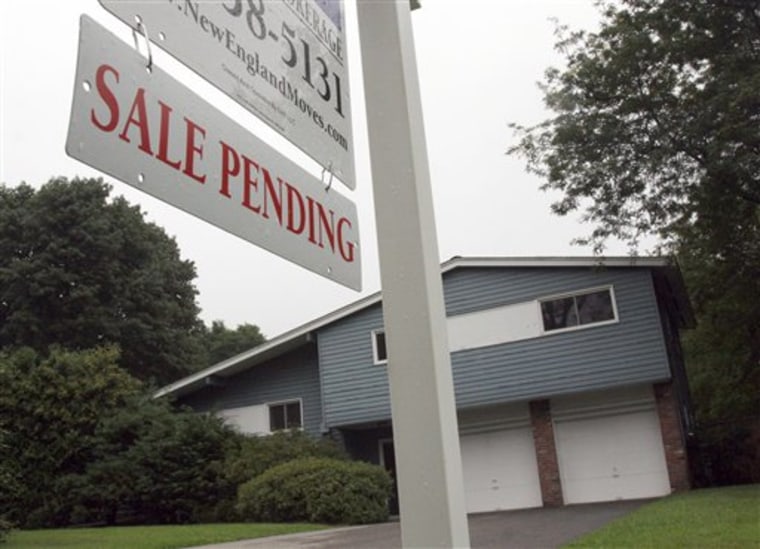Fixed mortgage rates have fallen to record or near-record lows. That's good news for the few who can afford to buy a home or are able to refinance. But the rates have done little to lift the ailing housing market.
Freddie Mac said Thursday that the average rate for the 30-year fixed mortgage fell to 4.32 percent this week from 4.39 percent. The 30-year loan hit a record low of 4.17 percent in mid-November.
The average rate on a 15-year fixed mortgage, a popular refinancing option, fell to a record low of 3.50 percent, from last week's record rate of 3.54 percent.
Mortgage rates tend to track the yield on the 10-year Treasury note. A weakening U.S. economy has led many investors to shift money from stocks to bonds, which are seen as safer bets. That has pushed Treasury yields to historic lows.
In theory, low mortgage rates should provide a boost to the troubled housing market. But rates have been below 5 percent for nearly two years and haven't helped home sales much. Rates on the 30-year fixed loan were near 6.5 percent five years ago and higher than 8 percent in 2000.
Sales of previously occupied homes fell in June for a third straight month to a seasonally adjusted 4.77 million. The pace is lagging behind the 4.91 million homes sold last year — the fewest since 1997.
New-home sales also declined in June and are trailing last year's sales, which were the worst on records dating back nearly half a century
.
Many people can't take advantage of the low mortgage rates. Banks are insisting on higher credit scores and larger down payments from applicants. Others have too little equity invested in their homes to qualify for loans.
Historically low rates have helped fuel another boom in refinancing.
Applications jumped nearly 22 percent last week from the week before, according to the Mortgage Bankers Association. Refinancing made up more than 75 percent of all mortgage activity, the group said. That's up from 70 percent the previous week and the highest level of refinancing this year.
Still, a higher number of refinancing applications is unlikely to have much economic impact. Many people have little or no equity in their homes. So they are not pulling money out when they refinance for home-improvement projects or other big expenditures. And many people already refinanced last year, when the 30-year loan fell to a record low.
To calculate average mortgage rates, Freddie Mac collects rates from lenders across the country on Monday through Wednesday of each week.
The average rate on a five-year adjustable-rate mortgage fell to 3.13 percent, its lowest level on records that go back to January 2005. Last week's reading of 3.18 percent also was a record low.
The average rate for one-year adjustable-rate loans plunged to 2.89 percent from 3.02 percent last week. That's a record low dating back to 1984.
The rates do not include extra fees known as points. One point is equal to 1 percent of the total loan amount.
The average fees for the 30-year and 15-year fixed loans was 0.7 point and the five-year and one-year adjustable-rate loans was 0.5 point.
